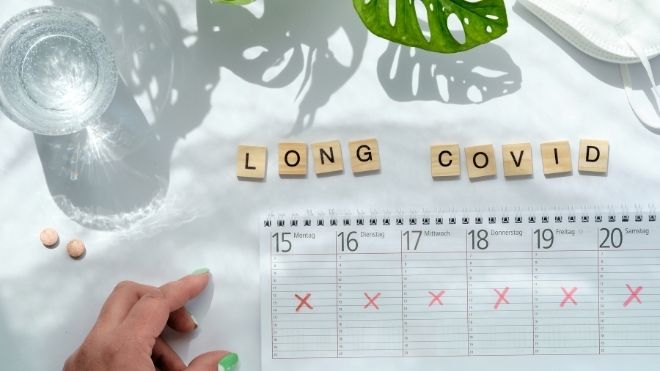As it continues to be studied, new information on long COVID becomes available.

Australian scientists have reported atypical immune activity in people with long COVID eight months after infection.
Can you catch COVID-19 more than once?
What is ‘abnormal immune activity’?
This research followed 147 people for eight months after their COVID-19 diagnosis. Blood samples were collected from the participants so they could be examined for biomarkers associated with long COVID.
A biomarker is defined as: “a characteristic that is objectively measured and evaluated as an indicator of normal biological processes, pathogenic processes, or pharmacologic responses to a therapeutic intervention.”
The research team noticed two types of biomarkers that were higher in the group of long COVID patients. The biomarkers were discovered eight months after the infection. These two biomarkers, known as interferons, are a protein made by the body in response to the virus.
Scientists also found “highly activated immune cells,” but lacked T and B cells, that are responsible for generating an immune response to new viruses.
Although this information is new and important, there were limitations to the study. In addition to the study being small, scientists were unable to collect samples during the period of acute infection.


